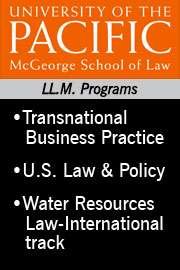TOEFL
LL.M. applicants from non-English speaking countries applying to law schools in the U.S., U.K., Canada, or Australia will normally have to show, as part of their LL.M. application, that they possess the necessary English language proficiency to follow an LL.M. program. While there are other language tests that are accepted, the TOEFL is the most popular among law schools in North America.
The TOEFL is offered by the Educational Testing Service (ETS) at locations around the world. Test center locations and dates on which candidates can take the TOEFL can be found here. If you are applying to an LL.M. this fall, you should sign-up as soon as possible. Moreover, if you are using the LLM Credential Assembly Service, make sure to remember to have ETS forward a copy of your TOEFL IBT score report to LSAC.
There are two formats for the TOEFL test paper or internet. While the format depends on the location of the test center, most LL.M. applicants will take the internet-based TOEFL test (TOEFL iBT). For those centers that do not have internet access, a paper-based test (TOEFL PBT) may be offered.
The TOEFL iBT consists of four sections: Reading, Listening, Speaking and Writing. The maximum score for each section is 30 points, making the maximum total score possible 120 points.
Minimum TOEFL test score requirements differ for each LL.M. program. For example, Harvard requires a minimum score of 100 on the internet-based test (with a minimum score of 25 on each subsection).
Even if you possess a good command of English, it is important to take the TOEFL very seriously and to prepare accordingly in order to achieve a high score. Only by being familiar with the structure of the TOEFL and having a clear idea as to what will be tested can a test taker obtain a high score. In other words, you need both good English language skills and a plan to do well on the TOEFL.
While ETS itself offers a number of resources, including free sample questions, that can be used to help prepare for the TOEFL, test takers should also consider using additional study aids, such as those offered by companies specializing in preparation. There are a number of free resources available on the internet. Finally, for those who are inspired by a class setting, there are providers that offer in-person TOEFL test preparation courses.
So prepare, prepare, prepare to ensure success on the TOEFL Test and good luck!





